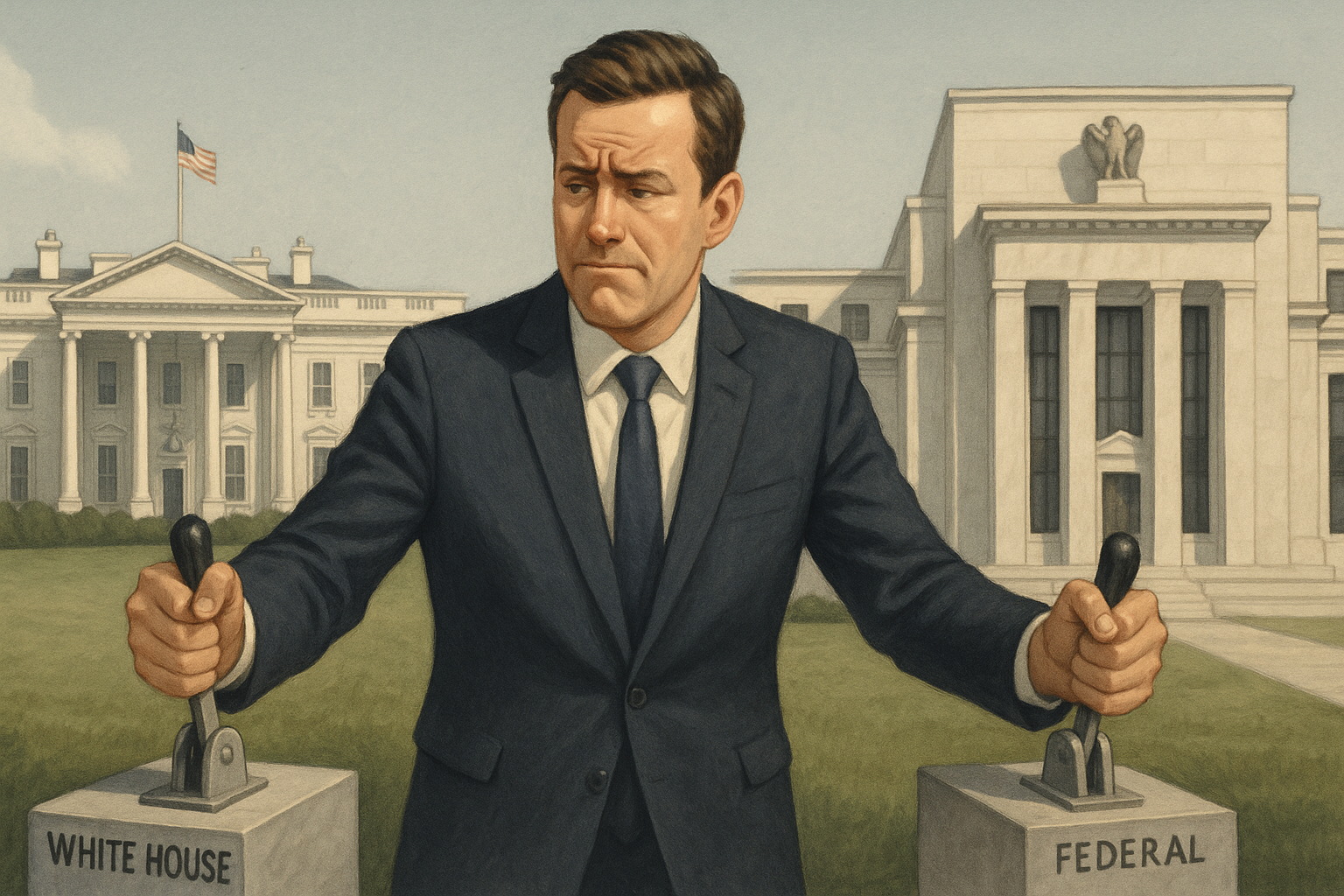In what might generously be called an unorthodox arrangement (and less generously called a glaring conflict of interest), Trump's latest Federal Reserve nominee has declared his intention to maintain his White House position even if confirmed to the central bank's Board of Governors.
Let me put this in perspective. The Federal Reserve operates as an independent entity for a reason. It's not just bureaucratic window dressing—it's the bedrock principle that allows monetary policy decisions to be made based on economic fundamentals rather than whatever way the political winds are blowing on Pennsylvania Avenue.
I've covered economic policy for years, and this proposal flies in the face of everything we understand about central bank governance. It's like announcing you plan to referee the Super Bowl while continuing to coach one of the teams.
The history here matters. When Paul Volcker jacked interest rates into the stratosphere back in the early '80s—causing short-term political pain but ultimately breaking the back of inflation—he wasn't doing it to make Reagan's administration happy. That independence is precisely what gave him the latitude to make difficult but necessary decisions.
"The appearance of independence is almost as important as independence itself," explained former Fed governor Sarah Bloom Raskin when I spoke with her yesterday. "Markets respond to perception as much as reality."
Look, there's plenty of precedent for public servants holding multiple roles. But these typically don't include positions with such fundamentally opposing mandates. The White House pushes policies to win elections. The Fed often needs to make unpopular decisions to ensure long-term economic stability. These aren't complementary responsibilities—they're inherently contradictory.
What's really striking? The market reaction. Or rather, the lack thereof. Bond yields barely budged on the news, suggesting investors either don't believe this nomination will succeed or—more worryingly—they've already factored in a more politically influenced Fed. Neither interpretation should comfort those who value institutional independence.
This nominee might argue he can compartmentalize these roles. Perhaps he imagines himself as some kind of financial superhero, changing identities in the Fed building's bathroom before important meetings. But c'mon. When I worked briefly in the financial sector years ago, we had to disclose if our distant relatives owned shares in companies we analyzed. Meanwhile, this guy thinks he can simultaneously work for the entity that sets monetary policy and the entity most affected by those decisions?
It's wild.
The broader context here (and this is important) is the steady erosion of institutional norms we've witnessed over the past decade. Boundaries that were once respected—not because they were explicitly codified but because everyone understood their importance—are increasingly tested, stretched, and sometimes snapped entirely.
Each precedent makes the next boundary-pushing move easier to justify. "Well, we already allowed that, so why not this?" becomes the refrain. And suddenly we're in uncharted waters without quite remembering how we drifted so far from shore.
The Senate confirmation hearings should be... interesting. I suspect we'll see some pointed questions about how exactly this arrangement would work in practice. The answers might determine not just this nominee's fate, but what kind of institution the Federal Reserve becomes in the years ahead.
Maybe I'm overthinking this. Perhaps this nominee is truly capable of serving two masters without compromising either role. He could, theoretically, recuse himself from decisions where the White House has a direct interest—which would, now that I think about it, be practically every significant monetary policy decision the Fed makes.
So, yeah. Not holding my breath on that one.
